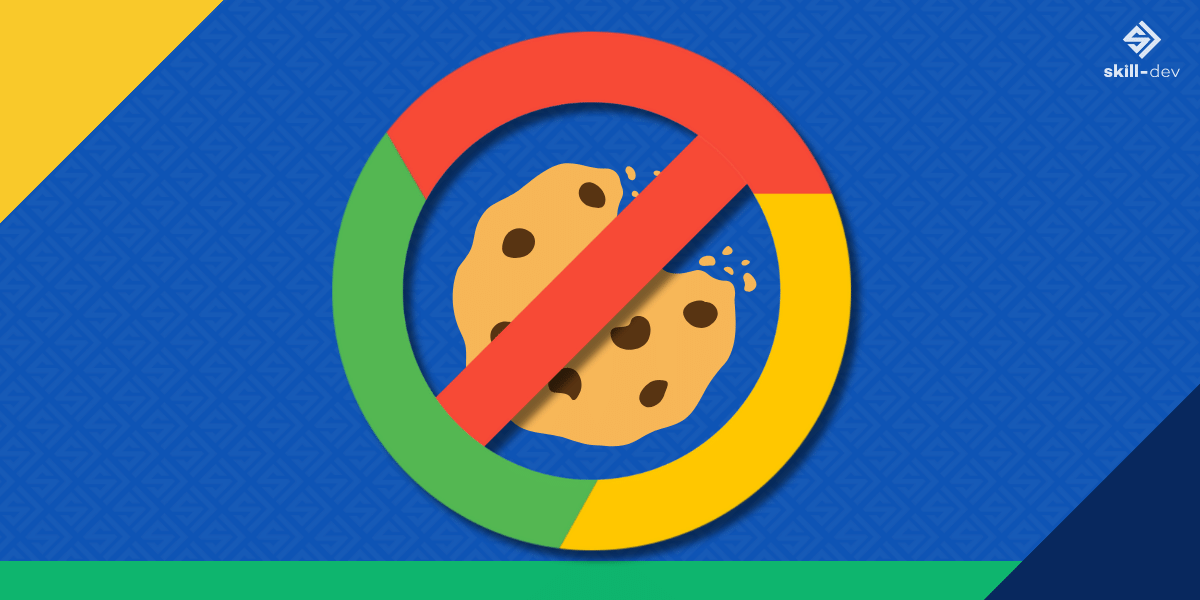2 min read
What You Need to Know: Google's Big Shift Away From Third-Party Cookies
Laura Evans : Feb 13, 2024 9:43:24 AM

If you've ever felt like online ads eerily know your interests, you've witnessed the power of third-party cookies. However, a major change is on the horizon—Google is phasing out these cookies in favor of something called the Privacy Sandbox. This shift began on January 4, 2024, for 1% of Chrome and Android users, and Google plans to phase out third-party cookies entirely by the end of 2024. It's important to understand how this change will impact your future online experience.
Before we dive in, let’s get straight to the question on everyone’s mind—will those annoying, ineffectual popups go away? Yes!!! As third-party cookies phase out, those popups will phase out as well. Now, let’s dig into the cookies.
What Are Third-Party Cookies?
Let’s start with the basics. Third-party cookies are small text files that websites use to track your browsing habits across the internet. They’ve been instrumental for advertisers to be able to tailor ads based on your interests. Basically, when you visit a website and look at a specific sweater, the third-party cookies have been sharing that you looked at that exact sweater with sites like Facebook and Instagram. No wonder Facebook always knows everything. These third-party cookies have naturally raised significant privacy concerns—they’ve been sharing our exact search histories with companies. Safari and Firefox users don’t need to worry about third-party cookies, though, because those browsers have them blocked by default.

Why is Google Making This Change?
Google's decision to move away from third-party cookies stems from these increasing privacy concerns. Many users feel uncomfortable with their online behavior being tracked and used for targeted advertising. Frequent third-party cookie data breaches and misuse of user data have further fueled these concerns.
Introducing the Privacy Sandbox
In response, Google developed the Privacy Sandbox, a collection of technologies and standards to replace third-party cookies. This initiative aims to balance user privacy with the needs of advertisers. Instead of the third-party cookies sharing that I looked at a specific sweater, Facebook will only know that I like to shop at stores that sell sweaters.
The Privacy Sandbox includes:
Ad Topics: Grouping users based on interests (like "Fitness Enthusiast" or "Tech Geek") for anonymous targeted advertising.
Federated Learning of Cohorts (FLoC) API: Using algorithms to group users into cohorts based on similar interests. The interests aren’t singular like you would find for ad topics. These users generally have several things in common, like shopping at hardware stores, searching from the Pacific Northwest, and often clicking on ads related to animals.
Trust Token API: Designed to authenticate users and prevent fraud. This makes sure that organizations aren’t getting information from bots.
Turtledove API: Serving relevant ads without tracking individual users.
How Will This Affect Your Browsing?
If you're wondering how this will change your online experience, the answer is subtly but importantly. You'll still see ads, but they'll be less personalized to your specific browsing history and more based on general interests. This shift is a big win for privacy, ensuring a more anonymous online experience.
What Does This Mean for Online Ads?
The ads you encounter will be based on broader, grouped interests rather than your individual browsing history. You may not see ads for the exact keyboard you were just looking at, but you can’t escape all the computer accessories ads. This change aims to strike a balance between privacy and personalization.
Embracing the Change
Google's shift to the Privacy Sandbox represents a significant step toward a more private, secure internet. As web users, we can expect an experience that respects our privacy while still offering relevant content.
This change might not be widely known yet, but it's a crucial development in how our online activities are tracked. As these changes roll out, it's an opportunity for us to embrace a more privacy-conscious browsing experience.
Are you a marketer with questions about what this shift away from third-party cookies means for you? Stay tuned for a follow-up blog where we'll dive deep into the implications for marketers and offer strategies for navigating this new landscape without third-party cookies.


